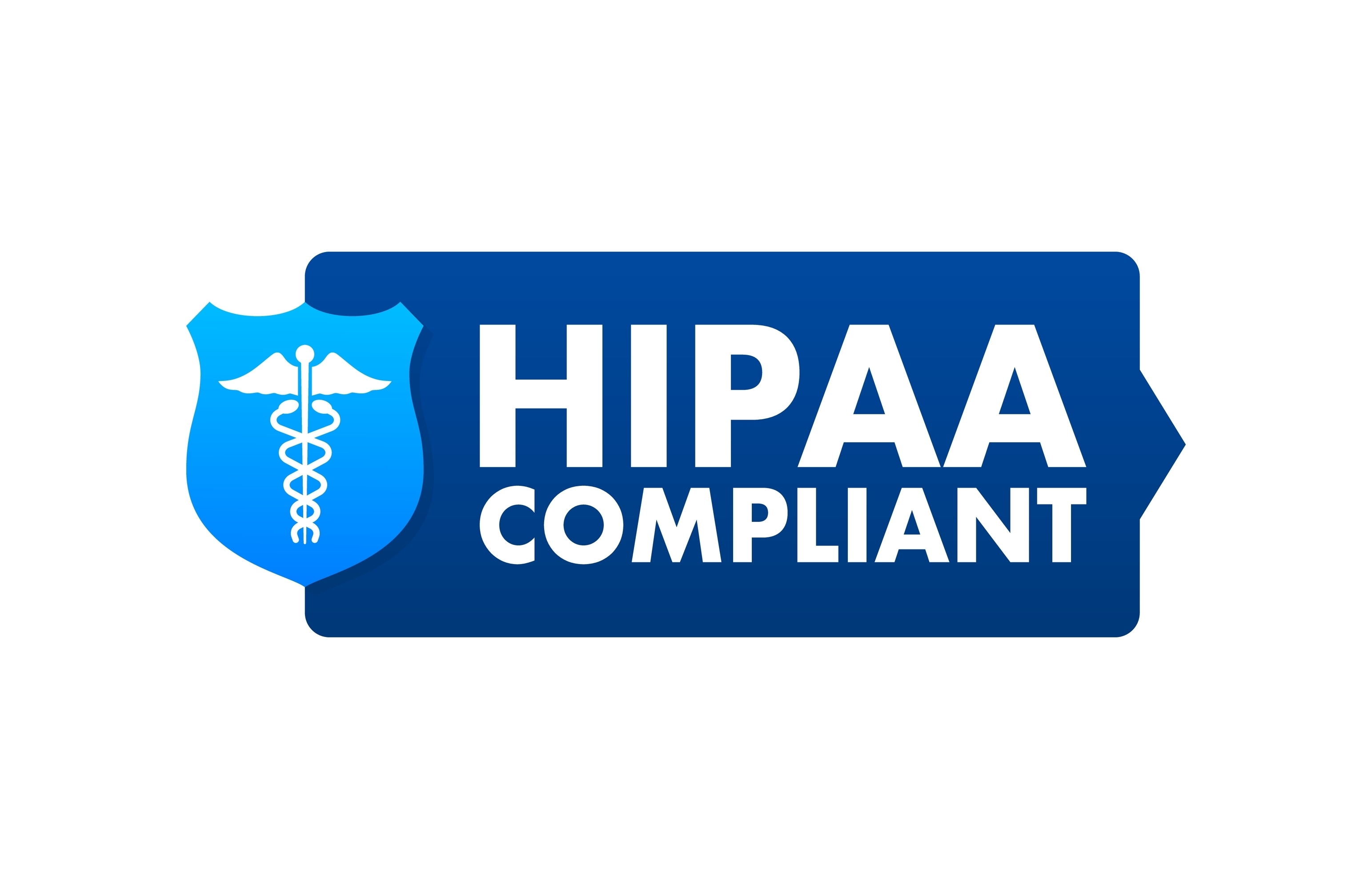All healthcare professionals like to receive positive online reviews. It’s a great way to let people know about you and the exceptional care you provide. Which, in turn, can help send new patients your way.
PICA Risk Management Specialist
Recent Posts
You Just Received a Negative Online Review… Now What?
Apr 11, 2025 11:41:16 AM / by PICA Risk Management Specialist posted in Compliance, Practice Management
Strategies for Patient Retention
Apr 11, 2025 11:29:42 AM / by PICA Risk Management Specialist posted in Practice Management
To have a thriving practice, you must have patients. While it is great to get new patients, it is important to focus on retaining established patients, too. If you create loyal patients, they not only return to your office for appointments, but they promote your practice to their friends and family which is great for business.
The Role of Informed Consent in Patient Care and Medical Liability
Mar 10, 2025 2:23:08 PM / by PICA Risk Management Specialist posted in Risk Management
As a doctor, you use your knowledge, experience, and medical judgment to determine the best course of treatment for your patient. However, adult patients with decision-making capacity have the right to choose or refuse to follow your treatment plan.
Practicing Culturally Competent Healthcare
Feb 6, 2025 1:53:05 PM / by PICA Risk Management Specialist posted in Practice Management
The Need for Fairness in Healthcare
In a perfect world, healthcare access and provision would be fair for all people, regardless of ethnicity, race, religion, gender, socioeconomic status, geographic location, language, age, disability, and other variables. Unfortunately, this is not always the case. To help address disparities in healthcare and improve patient outcomes, here is some guidance for practicing patient-centered and culturally competent healthcare.
Reducing the Risk Related to Unplanned Serial Surgeries
Feb 6, 2025 1:51:46 PM / by PICA Risk Management Specialist posted in Risk Management, Claims
Imagine this scenario. You perform surgery on a patient and the patient does not heal as expected or has a complication. You perform another surgery to correct the problem, but the patient eventually needs further corrective surgery. Your relationship with the patient has deteriorated, and the patient decides to seek treatment from another physician. In the meantime, the patient’s bills are piling up and the patient is having a tough time paying the bills. To make matters worse, the new physician criticizes your surgeries. The patient decides to sue you.
Medicare Finalizes Skin Substitute Graft Policies: Changes Coming in February
Jan 7, 2025 2:35:57 PM / by PICA Risk Management Specialist posted in Compliance
UPDATE 2/10/25: The Feb. 12, 2025 date referenced in this article has been delayed to April 13, 2025 by all seven Part B Medicare Administrative Contractors (MACs).
The Centers for Medicare & Medicaid Services (CMS) recently finalized Local Coverage Determinations (LCDs) for skin substitute grafts and Cellular and Tissue-Based Products (CTPs). Released by all seven Part B Medicare Administrative Contractors (MACs) on November 14, 2024, these policies will govern the use of skin substitute grafts for Medicare Part B beneficiaries for services rendered on or after February 12, 2025. The new policies set forth coverage requirements and limitations, including a list of covered and non-covered skin graft products, for the treatment of diabetic foot ulcers (DFUs) and venous leg ulcers (VLUs).
HIPAA Reminders for 2025: Cybersecurity & Reproductive Health Privacy
Jan 7, 2025 11:32:38 AM / by PICA Risk Management Specialist posted in Compliance
Measures to Strengthen Cybersecurity in Healthcare under HIPAA
Preventing Patient Death: Warning Signs You Can’t Ignore
Nov 4, 2024 4:33:52 PM / by PICA Risk Management Specialist posted in Risk Management, Claims
Unfortunately, a patient death can happen during the course of podiatric care and treatment. A patient may unexpectedly die from a DVT/PE following surgery. A patient you are treating for an infection may develop sepsis and die. A patient you are treating for a lesion may eventually be diagnosed with cancer and die. These scenarios are traumatic for the treating physician, as well as for the deceased patient’s family. Not all deaths can be prevented; however, there may be warning signs that a patient is at risk for this tragic outcome. Here are some warning signs you should never ignore.
Patient/Family History
Obtain and document a thorough patient and family history at the patient’s initial visit, then review the history for any risk factors that might be relevant when creating your treatment plan. Document any potential risk factors, any further investigation performed, and your rationale for your treatment decisions.
Lack of Treatment Progress
If a patient is not progressing as expected, reevaluate your treatment plan. Consider possible reasons for the lack of progress. Is your diagnosis correct? Does the patient have unmanaged comorbidities? Does the patient have the ability and resources to comply with the current treatment plan? Does the patient fully understand the severity of their condition and the necessity of compliance with your treatment plan? Does the patient have the proper nutrition to promote healing? There can be many reasons a patient is not progressing with treatment, and promptly addressing these reasons can potentially prevent a poor patient outcome, including death.
Complications
Recognize and address any complications a patient may have in a timely manner. Failure to recognize and address a complication – such as infection or circulatory issues – as quickly as possible increases the risk the patient will have a bad outcome due to the complication. Document the complication, your conversations with the patient regarding the complication, your treatment plan to address the complication, any referrals for further evaluation, and the reason for the referral, follow-up evaluations, and the patient’s response to treatment.
A Patient Tells You Something Isn't Right
Patients know their bodies and know when something is just not right. Listen to them. Document their concerns and your immediate steps to address their concerns. In some cases, a post-op patient calls their doctor stating they feel anxious or just do not feel right, the doctor chooses not to evaluate the patient, and the patient dies from a pulmonary embolus. The patient’s concerns may not be indicative of a problem, but it is much better to rule out a problem than find out later the patient suffered a bad outcome from an unrecognized problem.
The Patient Doesn't Return for Treatment
If you are treating a patient that needs follow-up and the patient does not return for treatment, the patient needs to be informed of the necessity for continued treatment and the risks of not seeking further treatment. This is especially important if you have diagnostic study findings that indicate a potentially life-threatening problem, such as a biopsy report stating the patient’s lesion is cancerous. These patients sometimes fall through the cracks leading to prolonged treatment, deformity, pain and suffering, and even death. If the patient does not respond to phone calls, it is advisable to send the patient a certified letter, return receipt requested, detailing the patient’s condition, recommended treatment, risks of not receiving treatment, and the need to seek care from a healthcare provider. Document all conversations with the patient and phone call attempts in the patient’s medical record. Copies of any written correspondence with the patient and return receipts, if applicable, should be kept in the patient's medical record.
By being cognizant of these warning signs, you could save a patient’s life - or in the unfortunate and tragic event of a patient’s death, you will reduce your risk of a lawsuit alleging your actions or inactions resulted in the patient’s death.
Comorbidities Relating to Podiatry
Nov 4, 2024 10:57:13 AM / by PICA Risk Management Specialist posted in Risk Management
Introduction
November is Diabetes Awareness Month. Diabetes, particularly type 2 diabetes, comes accompanied by a host of comorbidities that directly impact the type and effectiveness of care required in treating the lower extremity, specifically the foot and ankle. Podiatrists are trained in the recognition of these comorbidities as well as their influence in outcomes of treatment. In this article, we will examine prevalent comorbidities and relate them to the anatomical considerations of foot and ankle pathology and where issues in successful treatment can possibly arise.
Diabetes is essentially a systemic abnormality of insulin regulation or the body’s ability to process sugar correctly. This irregularity leads to many other organ issues that can then manifest in the lower extremity. In effect, the lower extremity mirrors systemic disease. The patient complaints and condition that can appear in a podiatrist’s office can be related to conditions that affect their whole body. The most common comorbidities related to diabetes that intersect with podiatric medicine and patient care are obesity, heart disease, cerebrovascular disease, peripheral arterial disease, kidney disease, neuropathy, retinopathy, immune system compromise, and mental health issues.
How do each of these comorbidities affect foot and ankle pathology in a holistic sense?
Artificial Intelligence & Medical Documentation
Sep 16, 2024 2:16:56 PM / by PICA Risk Management Specialist posted in Risk Management
Artificial intelligence (AI) is generally defined as computer systems that can perform complex tasks that previously only a human could do, such as reasoning, decision-making, or problem-solving. AI is rapidly being integrated into our world, including healthcare. Proponents of the use of AI in healthcare believe it has the potential to make healthcare more efficient, less expensive, more accessible, and safer for patients.
AI Software for Medical Documentation
One of the more common uses of AI in physician offices is software for medical record documentation. This AI software is being marketed as a tool to make documentation more accurate and less burdensome. AI medical documentation tools work by using advanced algorithms and machine learning techniques to analyze and interpret large amounts of data related to healthcare, including patient records, lab results, and clinical notes. A key component of these tools is natural language processing (NLP), which allows the AI to understand and generate human-like language.
AI automates documentation by creating notes in real-time by listening to physician-patient communication. AI can collect, sort, and assemble clinical information from previous notes, laboratory results, reports, and other contents of the medical record and provide real-time recommendations using dynamic clinical data mining. Additionally, AI can automate billing and coding based on risk-adjustment factors and can also draft level-of-service recommendations.
Potential Risks of Using AI Software at Your Practice
While the advancements in AI and the opportunities to streamline processes at a doctor’s office are exciting, the use of AI in healthcare is not without risk.










